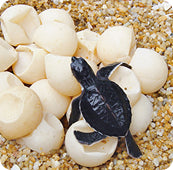The plastic dilemma and which countries are proving to be role models here
The plastic dilemma and which countries are proving to be role models here

The EU has decided to declare war on plastic waste. Some countries have been doing what is urgently needed for a long time – especially outside the EU.
There, for example, thin plastic bags, which are available free of charge in Germany alongside fruit and vegetables, are on the enemy list.
Today we will show you which countries are proving themselves to be pioneers.
Did you know that…
- Each person produces on global average 0.74 kg of waste per day?
- 2 billion plastic bags are used in Germany alone every year?
- In Europe only about 7% of plastic bags are recycled?

Rwanda
The beautiful small country in Central Africa is clearly leading the way when it comes to plastic bans.
Plastic bags have been completely banned here since 2008. Anyone caught with a bag even has to pay a fine.
And when you enter the country, you also look closely - imported plastic bags are confiscated by customs and companies that use plastic bags without a special permit may end up in prison for a few months.
Rwanda not only bans plastic, they also educate about it in schools. Schoolchildren learn early on how long it takes for a plastic bag to decompose.
The strict plastic policy is showing success: the capital of Rwanda, Kigali, is the cleanest city in all of Africa.

Kenya
In 2017, Kenya will follow the example of Rwanda. Around 100 million bags were distributed annually by supermarkets alone. This clogged sewage systems, endangering drinking water.
Not anymore: Anyone who now sells plastic bags despite the ban can expect a fine of 40,000 US dollars and up to 4 years in prison. And even those who carry a plastic bag with them can pay a high fine of up to 35,000 US dollars.
Kenya has the toughest anti-plastic bag law on the continent.

Tanzania
Kenya's neighbor Tanzania is also new.
Since June 1, 2019, manufacturers of plastic bags in the East African country have been threatened with a fine of up to one billion Tanzanian shillings (about 390,000 euros) or even two years in prison.
Consumers must also expect severe penalties for violating the ban: A plastic bag user could be punished with 30,000 shillings (about 12 euros) or two weeks in prison.
Plastics for medical purposes, for agriculture or the construction industry are exempt from the ban.

New Zealand
New Zealand is getting a grip on microplastics in cosmetic products - they have not been allowed to be sold since 2018.
In 2019, New Zealand also banned the sale of plastic bags.

China
The heavily populated country was increasingly struggling with plastic waste, which is why the government decided in 2008 to ban free plastic bags and their production. These in particular have an extremely short lifespan.
Our tip:
Maybe we in Germany will get to where these countries are. Nature and wildlife would thank us.
It is best to ensure that your rubbish is separated and disposed of properly. Jute bags and baskets not only look chic, they can also be used several times.
And last but not least: Shopping in bulk shops is really fun!
If you would like to be informed directly about the latest blog posts, please follow us Instagram ! :-)












